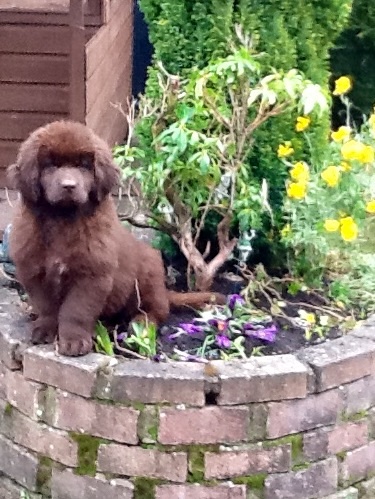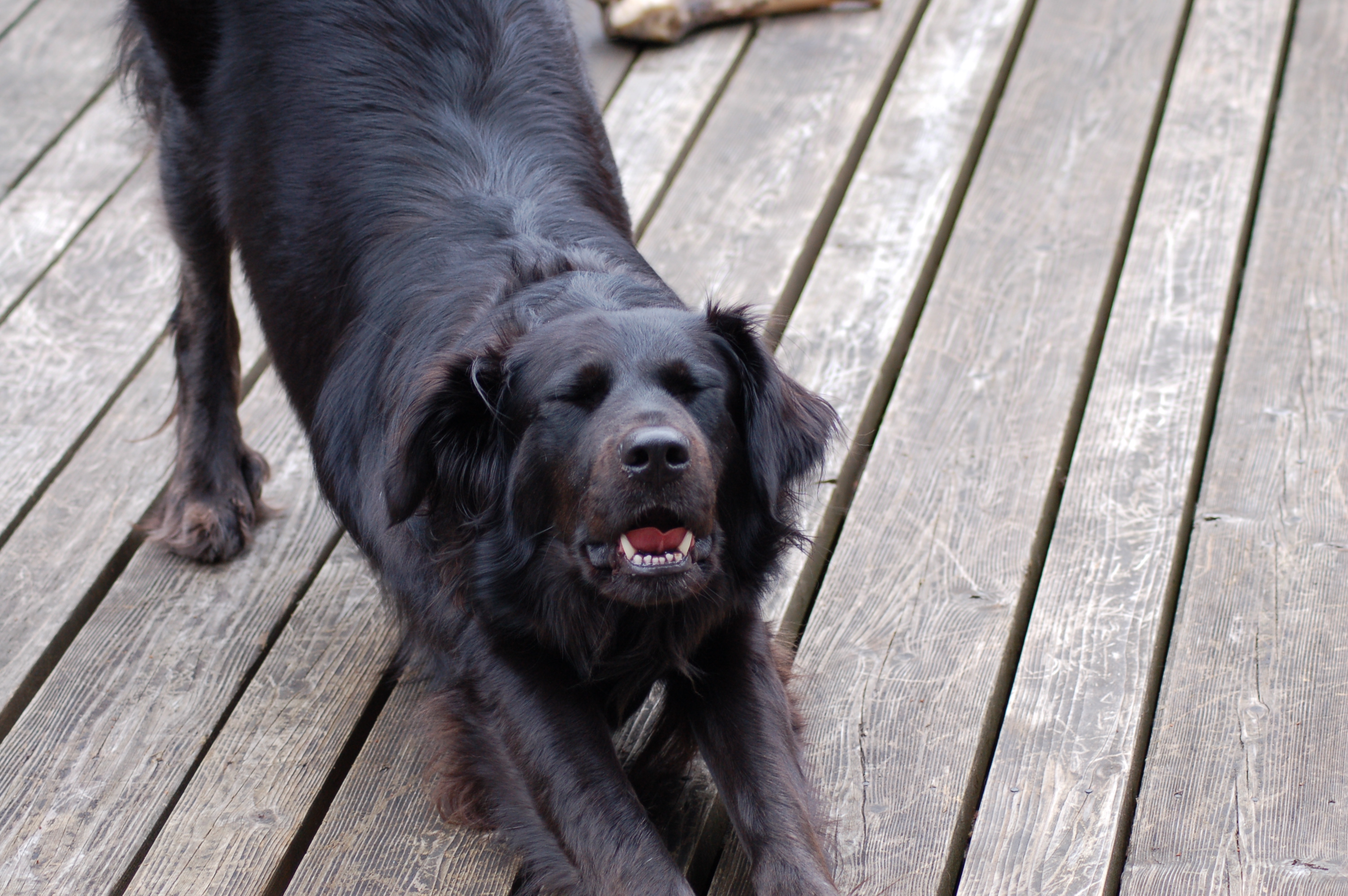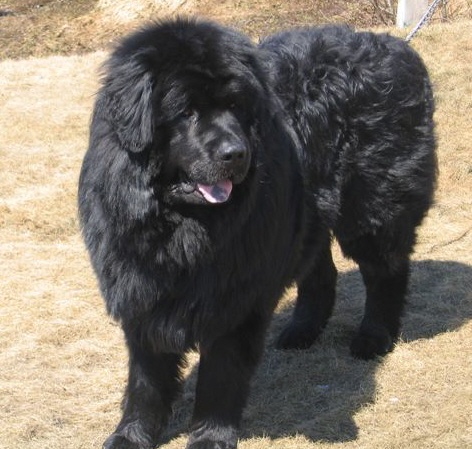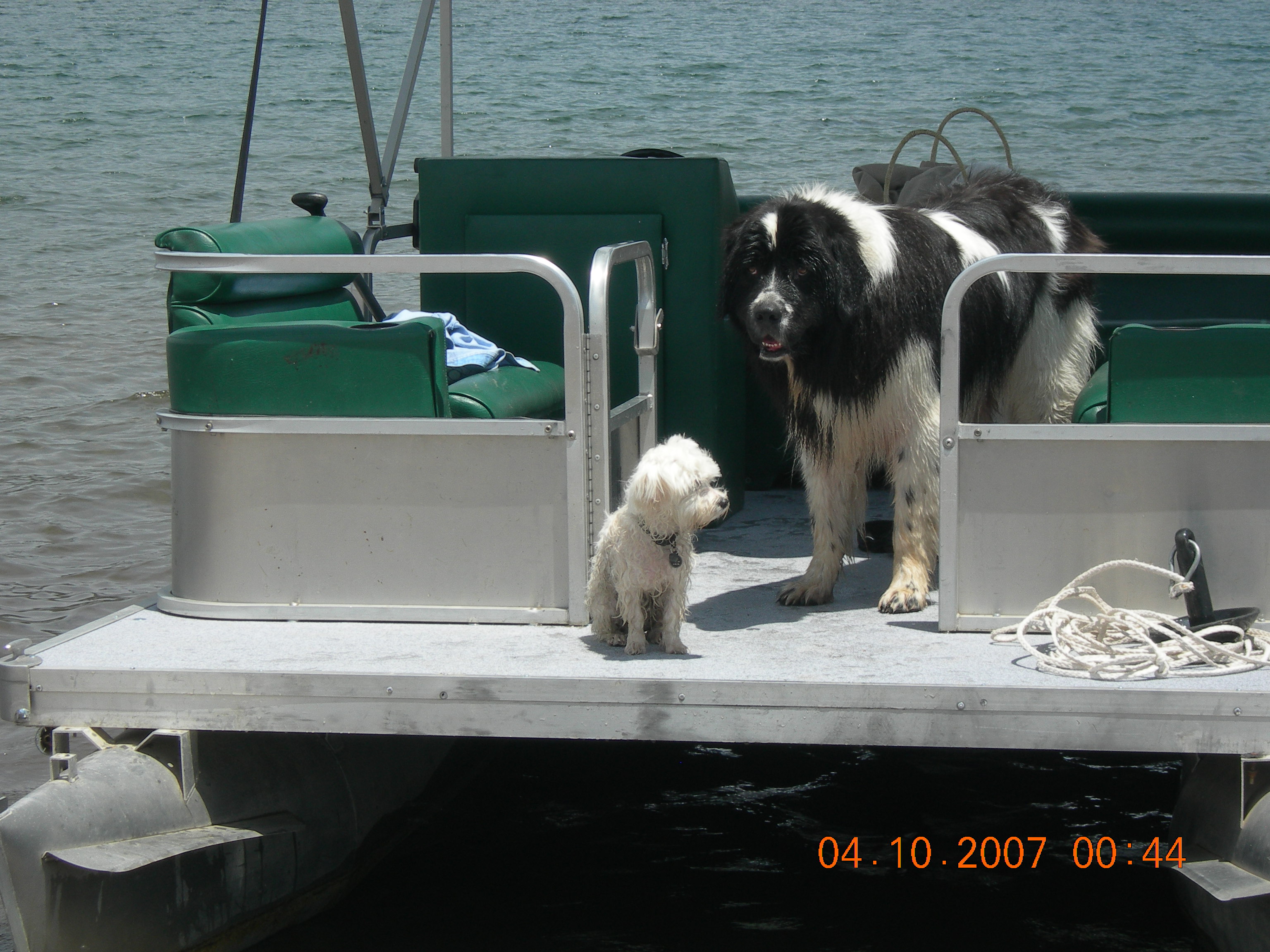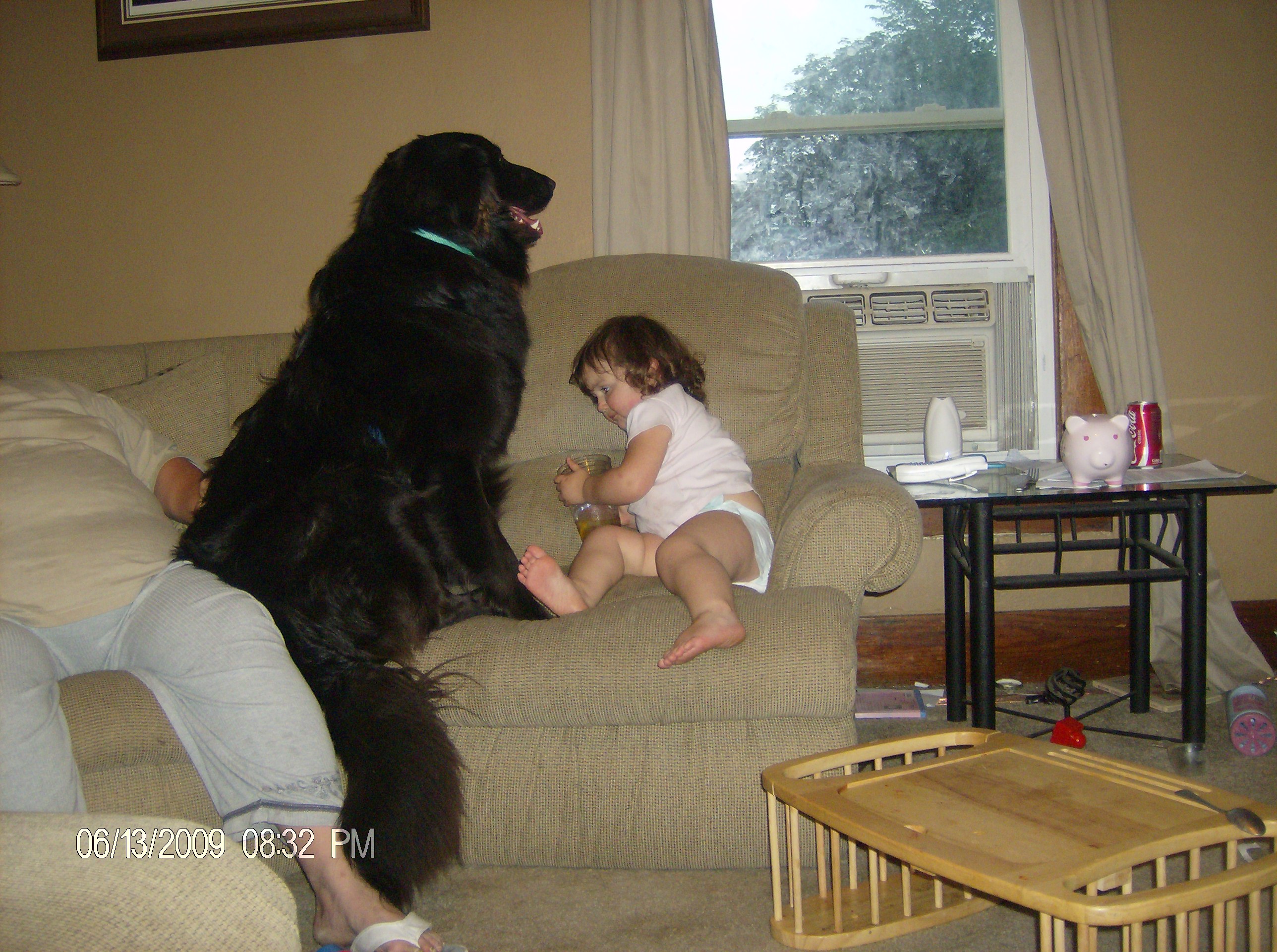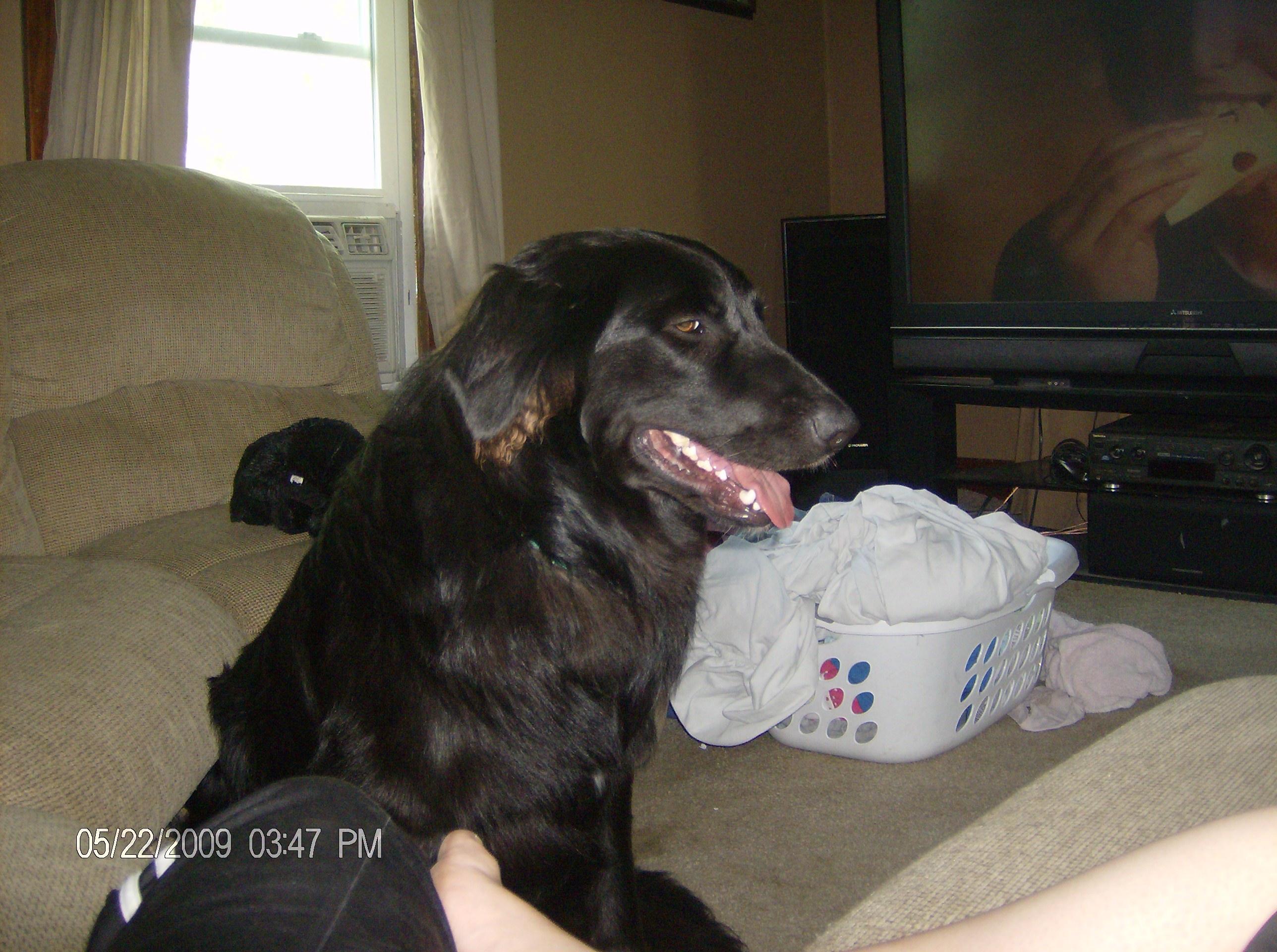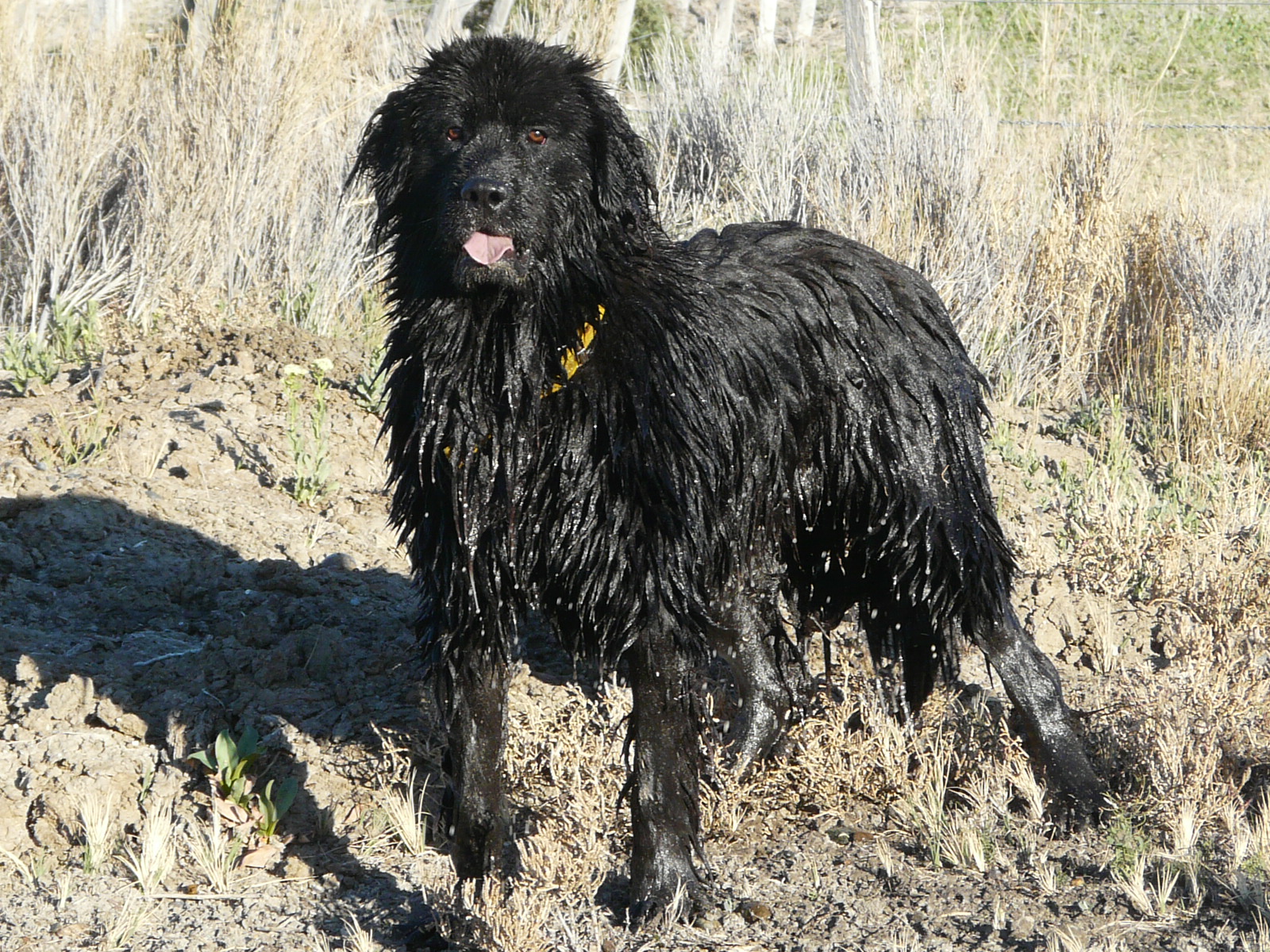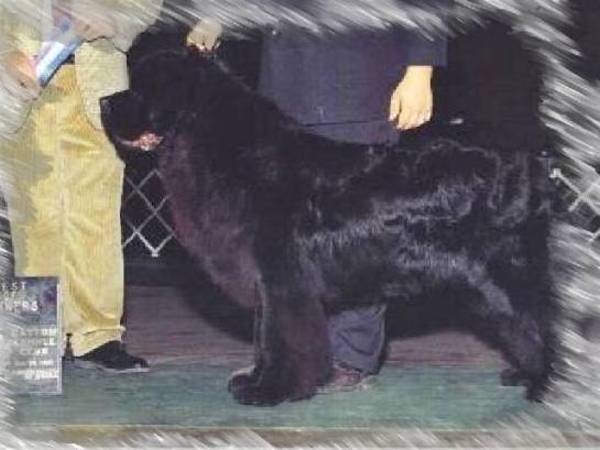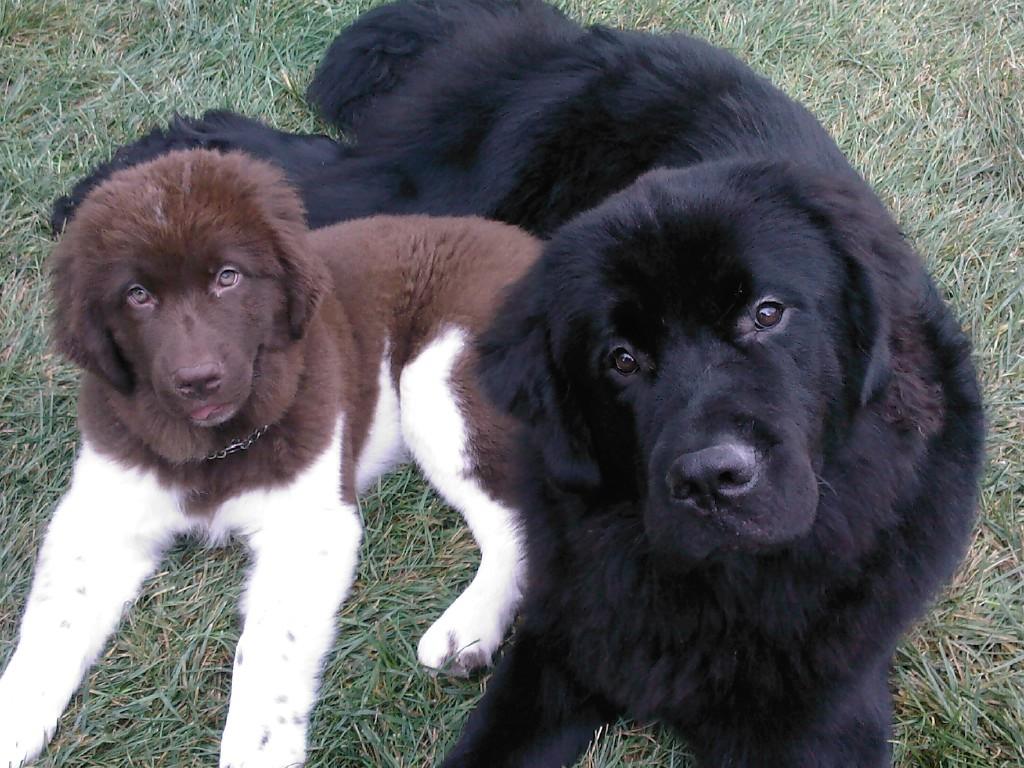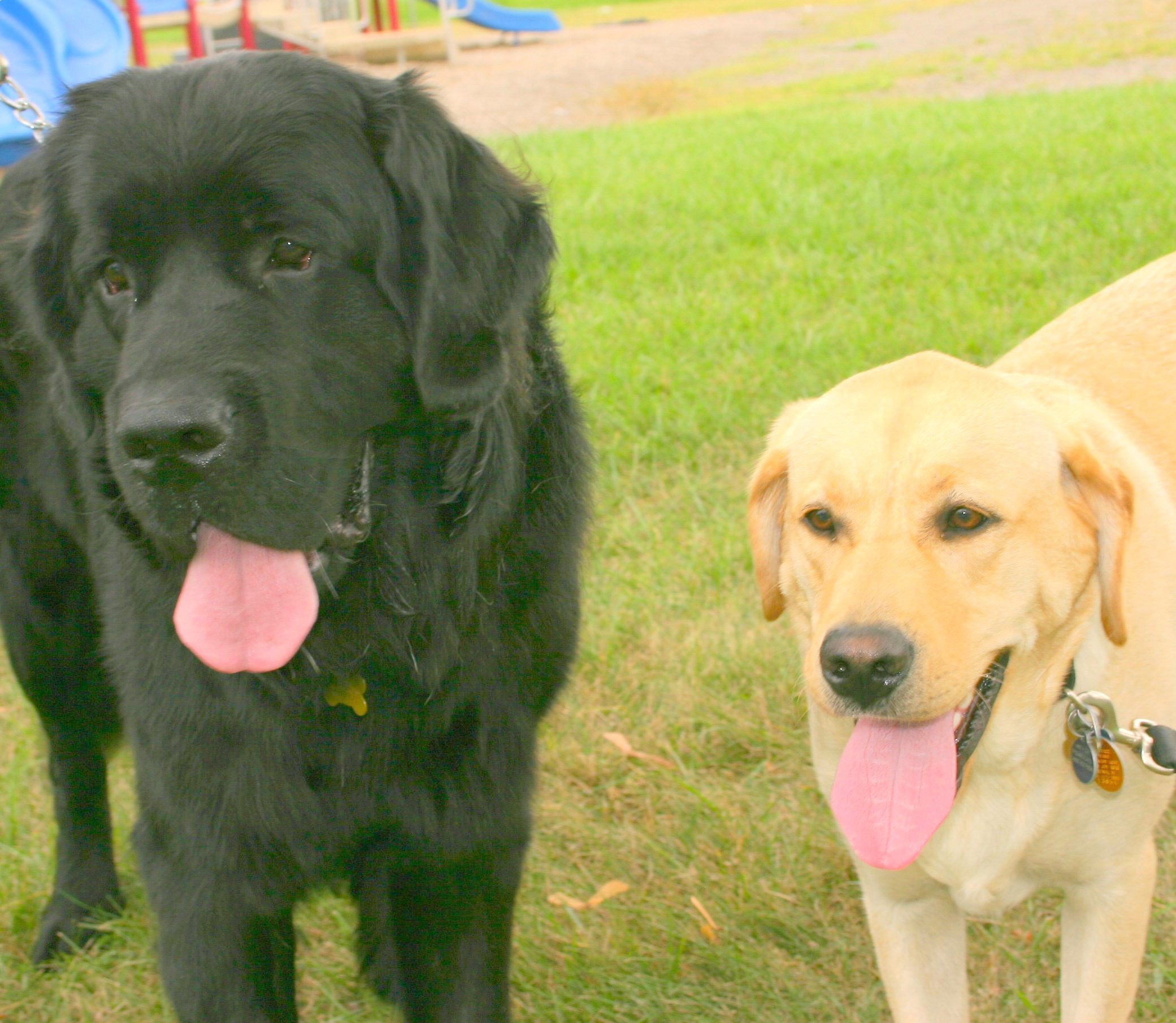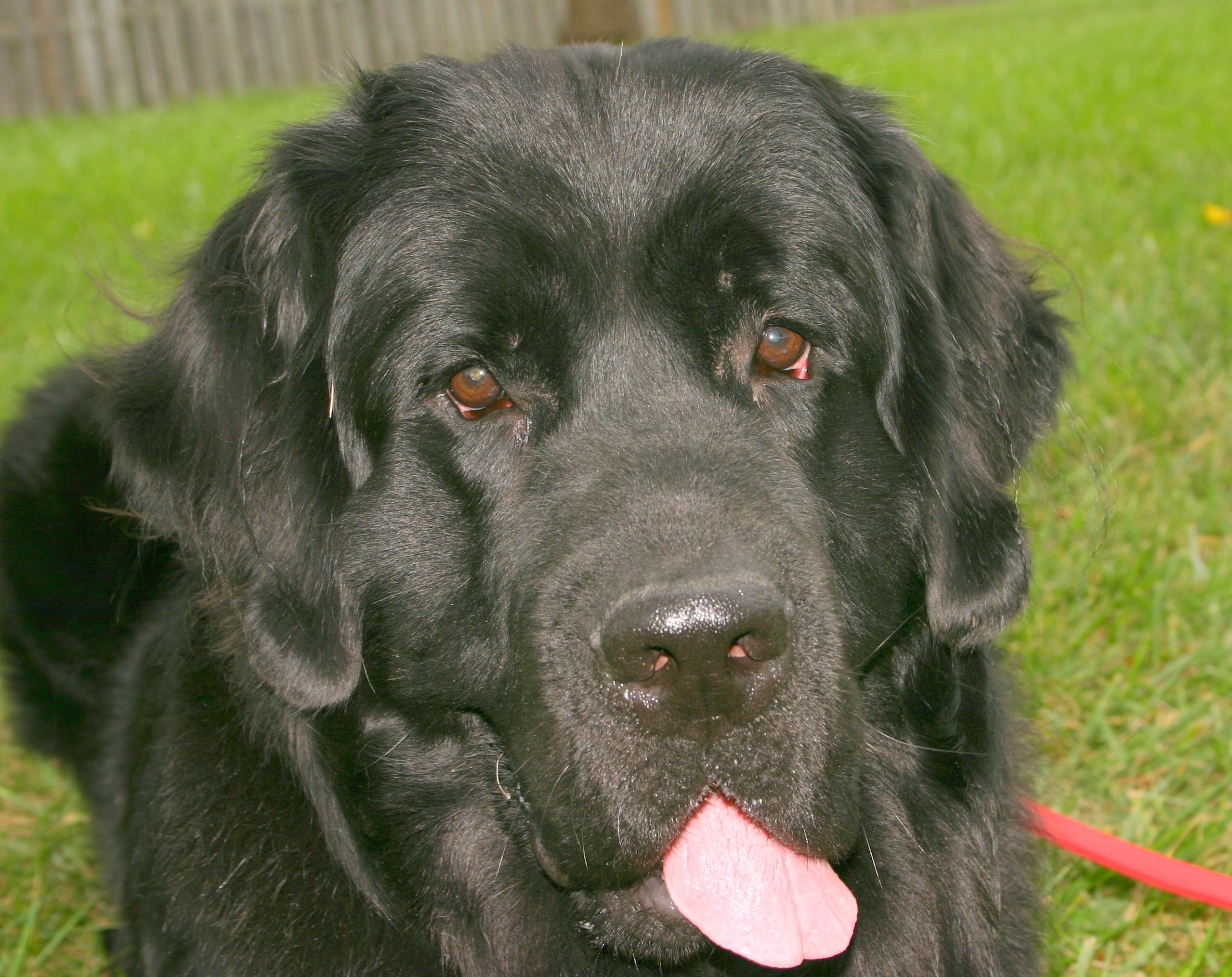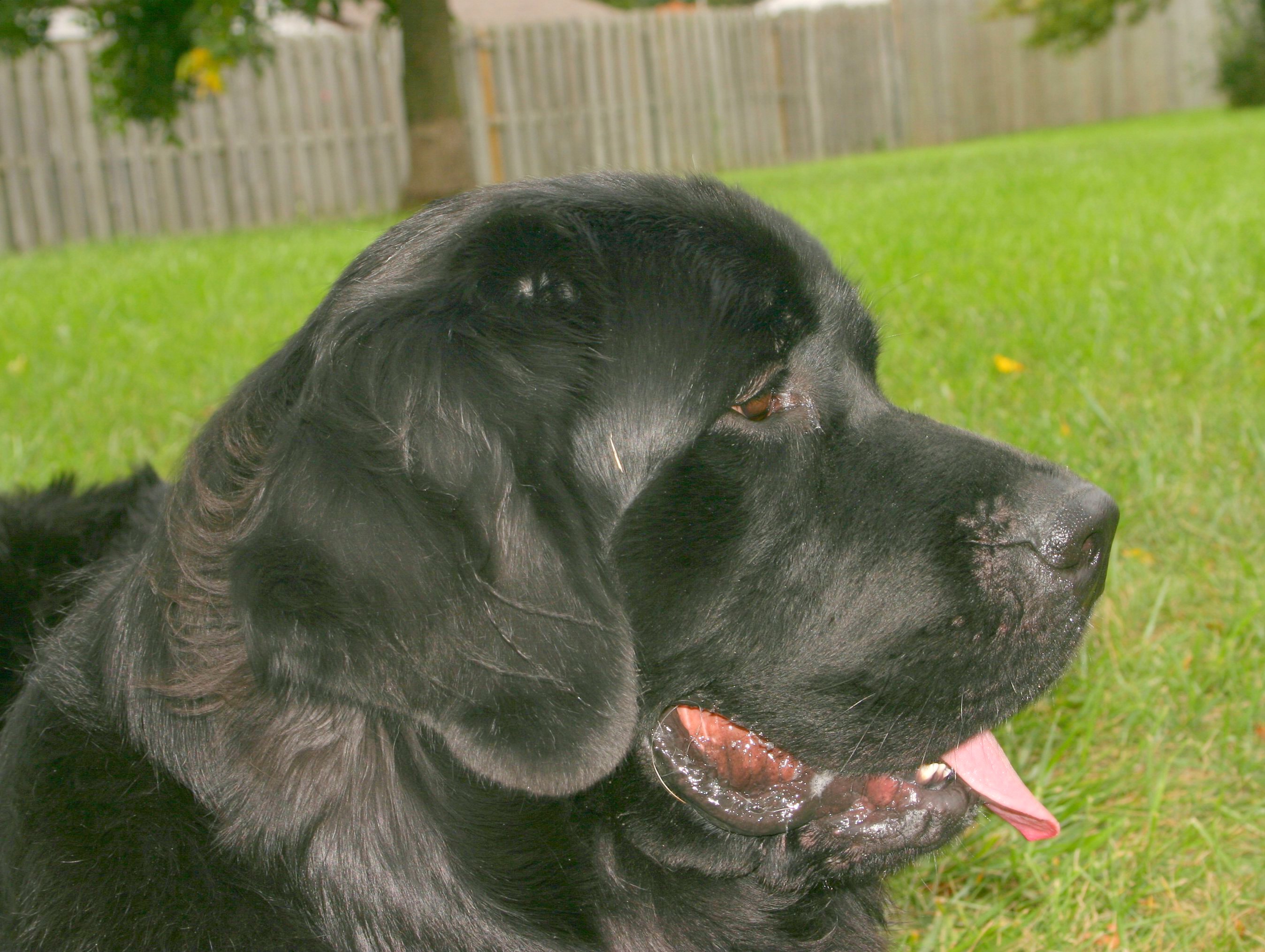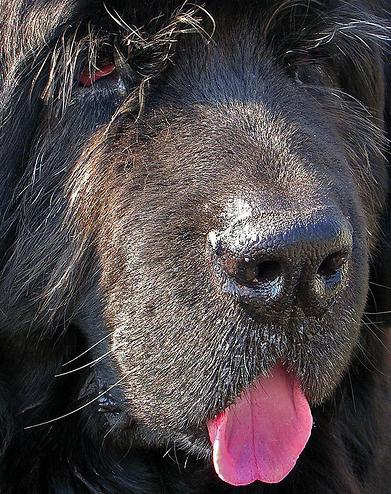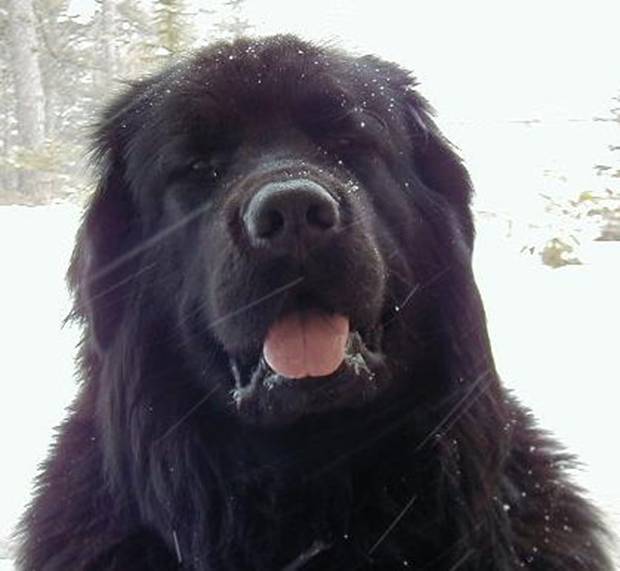
(Newf, Newfie) The Newfoundland is a multi-purpose working and companion dog with a large, well-balanced build and a strong, heavy-boned, muscular body. They present themselves with pride, dignity, and a sweet disposition. The breed’s neck is strong, well-set onto the shoulders, and long enough to permit a high head carriage. They have a broad back that is strong and well-muscled, and it is level from the point just behind the withers to the croup. Their full, deep chest extends down to the level of their elbows, and their shoulders are well-muscled and laid back. Elbows of this breed lie directly below the highest point of the withers. They have well-sprung ribs, a deep flank, and a broad, slightly sloping croup. The broad, strong, slightly curved tail correlates with the line of the croup. Their cat-like feet are webbed and their size is in proportion to the rest of the dog’s body. They have heavily boned, powerful hindquarters and their limbs are straight and parallel when perceived from the rear. The hocks are well let down and the thighs are broad and comparatively long. The massive head of the Newfoundland features a broad skull, a slightly arched crown, and well-developed cheeks. Their stop is moderately defined, but it can appear more prominent because of the well-developed brow. They have a clean-cut, broad muzzle that has a rounded top and a straight bridge. The breed’s teeth close in a scissors bite and their small, deep-set eyes are dark brown in color. Their ears are small and triangular, and they have rounded tips. The flat double coat of the Newfoundland consists of a coarse, long, straight or slightly wavy outer layer and a soft, dense under layer. The hair around the face and muzzle is short and fine by comparison. Coat colors of this breed include black, brown, gray, or a white base coat with black markings. Clear white or white with minimal ticking is also accepted. A variety of markings may be present on dogs with solid-colored coats.
add infoThe Newfoundland is an outstanding companion with a good-natured, courageous, generous, and intelligent temperament. They are noble, loyal, and calm, and they are hopelessly devoted to their master. They are patient by nature and mild in the company of strangers. Some become so attached to their family that they cannot adapt to a new one. They have strong protective instincts, but rather than bark or growl, they tend to place themselves between the intruder and their family. Some males may be aggressive towards other dogs. In general, the Newfoundland gets along well with other animals. They are loving, playful, and patient with children. They love the outdoors and they love to swim. They tend to drool and slobber, but not nearly as much as other large dog breeds.
add infoLike many other large dog breeds, the Newfoundland is prone to hip dysplasia. They are also susceptible to a hereditary heart disease called sub-aortic stenosis (SAS). It’s very important for owners of this breed not to let their Newfoundland(s) become overweight. This breed typically live for 9 – 15 years.
Newfoundlands are prone to Gastric Torsion (Stomach Turning), like many other large dogs. If this should happen, take the dog to the vet immediately, as it is an emergency situation.
add infoThe Newfoundland originated in Newfoundland as the result of crosses between dogs native to the island and big, black, bear dogs that were introduced by the Vikings in 1001 A.D. While the breed was shaped and improved with the advent of European fisherman, the essential characteristics of the Newfoundland remained. By the time of colonization in 1610, the distinctive attributes of the Newfoundland were firmly established. The breed was utilized by the fisherman for a number of working purposes including hauling in nets, carrying boat lines to shore, and retrieving anything which fell overboard. They were also used to pull mail sheds, deliver milk, haul lumber, and carry loads in packs. The breed is an outstanding water rescue dog, and they have saved many lives throughout the course of history. In addition to being a wonderful companion, the Newfoundland excels at water trials, competitive obedience, weight-pulling, carting, backpacking, watching, and guarding.
add infoThe coarse, thick, double coat of the Newfoundland requires daily to weekly brushing with a hard brush. The breed’s undercoat is shed twice per year, and extra care should be given to the coat at these times. They should be bathed only as necessary. Excessive washing will strip the coat of its natural oils.
add infoThe Newfoundland is content to live in a small household or apartment if it is sufficiently exercised. They are a comparatively inactive breed indoors, and they are happiest with at least a small yard. Because of their thick coat, they are very sensitive to hot weather. They have a propensity to become lazy, but they benefit from moderate amounts of physical activity. The Newfoundland should be given plenty of opportunities to swim and frolic.
add info| Puppies For Sale | Find a Breeder | Rescue a Dog |
|---|---|---|
| Be the First to take out an Ad! |

Berlin, DE
Die Hobbyzucht im „Butzemannhaus“ ist geprägt von Liebe und Respekt gegenüber den Tieren. Ich sehe meine Tiere nicht... |
Be the First to take out an Ad! |
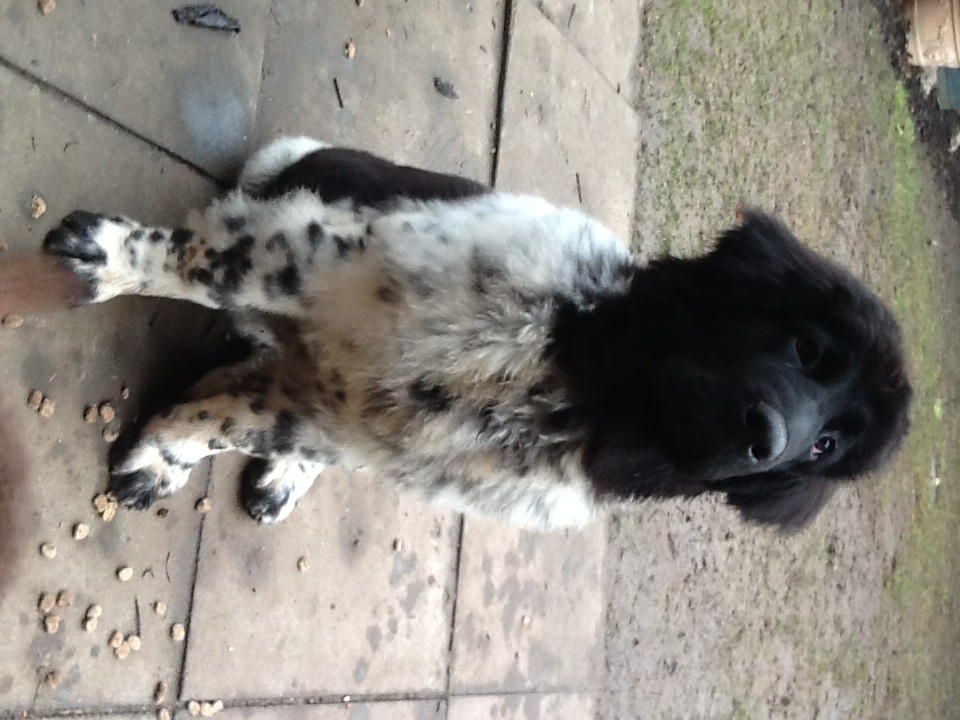 |
I am not sure what you mean by "base coat" (the soft underlying hair, perhaps?),but here is my 2-cents-worth. I have never heard of this. I think it is unlikely that such a pup will grow hair that is black through and through. every pup I have ever seen is black from the start. I now have a Landseer (white and black). With Landseers, some small areas that start out white do become black. (You can tell somewhat by the color of the underlying skin whether this will happen or not. The skin under black hair is somewhat bluish and the skin under the white areas is piink.) HOwever, mostly, he looks as he looked at 9 weeks, except for black hair overgrowing his forehead blaze. I would check with your breeder about this. If you did not get your dog from a breeder, I would doubt that it is a purebred Newfoundland, or else you have an interesting mutation. |
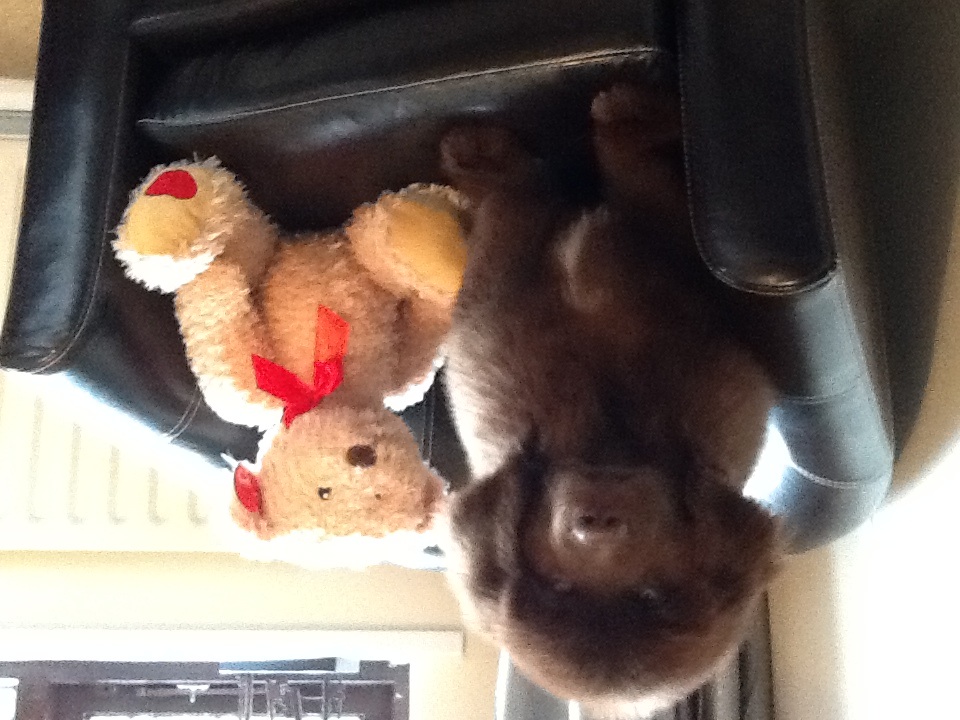 |
I would like to know if Newfies come all white? No...only solid with white patches on feet, tail tip, chest and chin...or landseer not all white... |
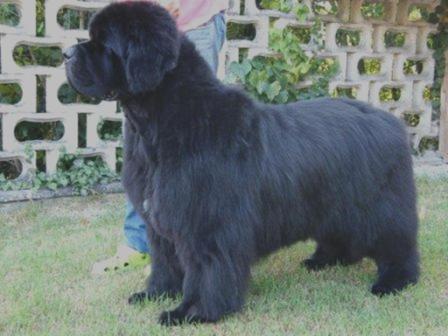 |
It should be fine to own one. As long as you give it lots of shade and don't give it too much exercise and it should be fine. Give it lots of water with ice cubes and make sure it gets lots of swimming time:) |
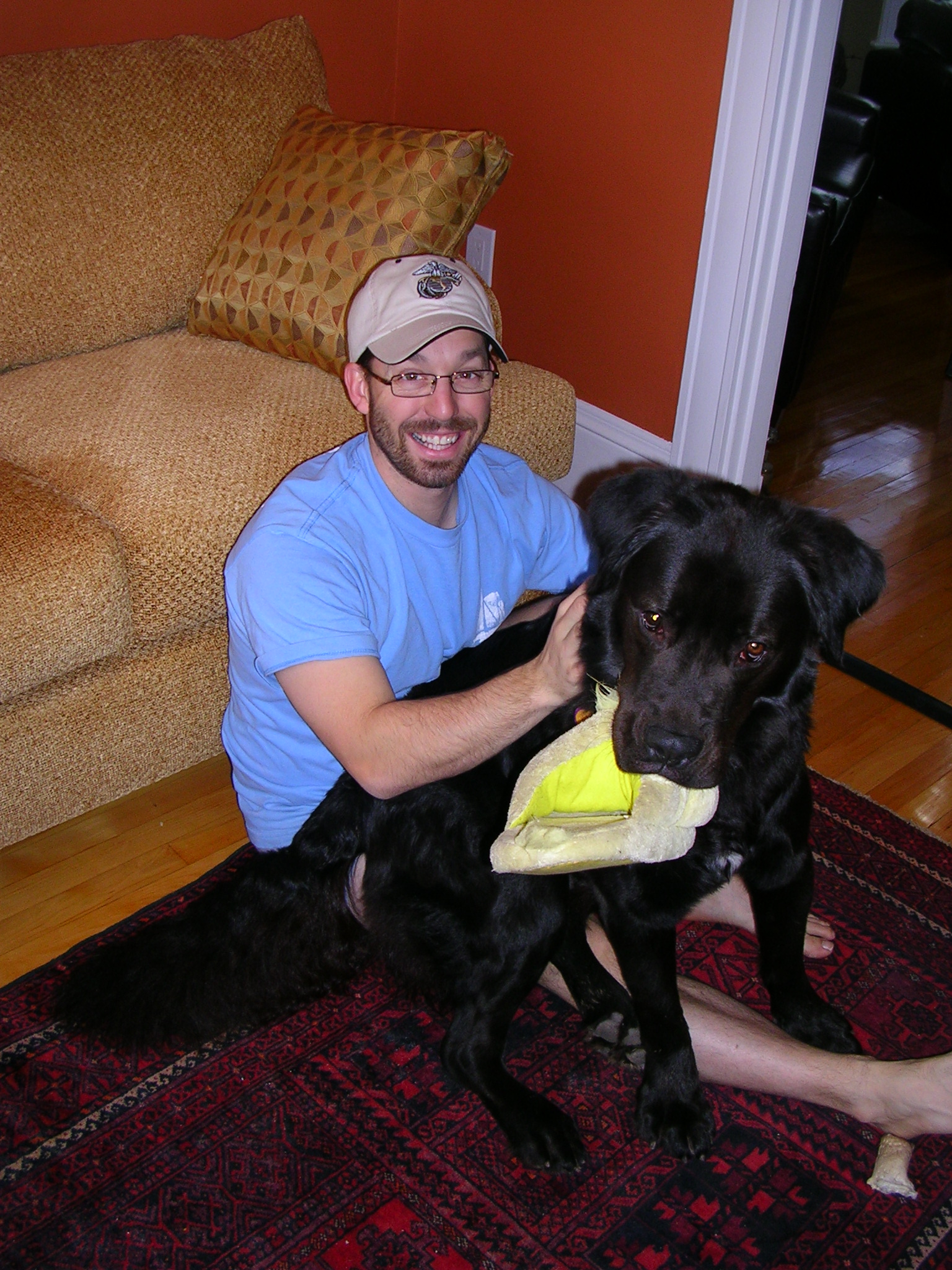 |
You should bring it to the vet just to be safe. But it could be due to the mix. Occassionally, a dog will shed. But not this much. He should grow in a new coat as soon as you change his food |
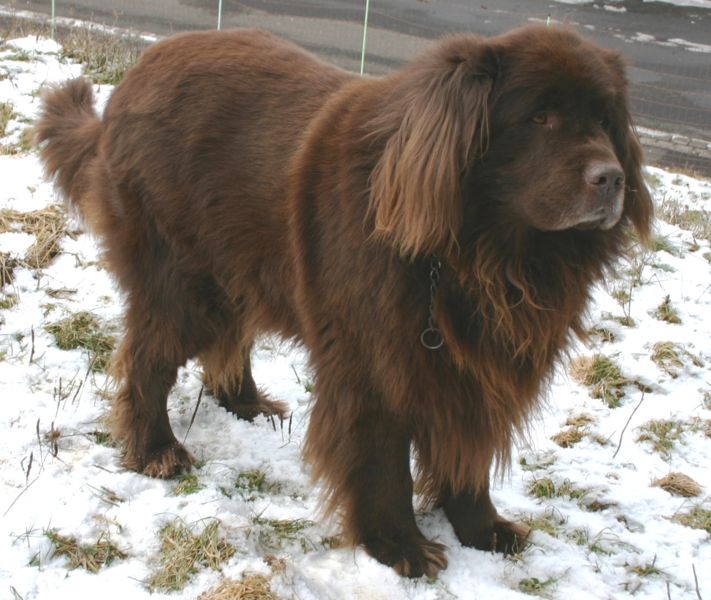 |
I think you should get them fixed. It's really up to you if you want to breed them. Yes you should give them a health check before breeding. A male usually stays in heat for a year. He will be chasing after females during this time so make sure your fence is really secure and that the male newfoundland can't get out of the yard. |
 |
male newfie should weigh about 130-150 lbs |
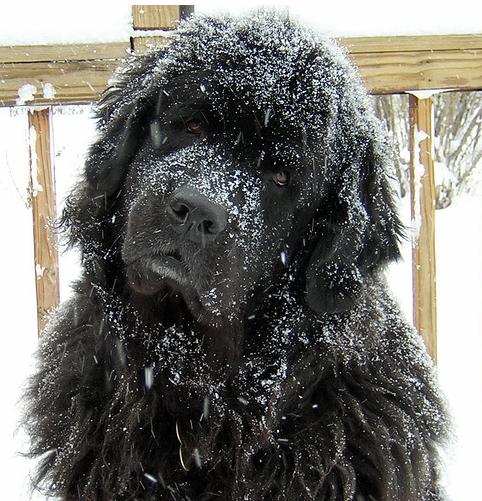 |
If the showing of the teeth looks as though he is almost smiling then it is a sign of obedience and desire to please. My two year old Newf does this all the time and its her way of seeking approval. My Newf never realizes quite how big she is. She often mistakes herself for a lap dog. What I have found is they so desperately want to be a part of you life that they will do anything to be close whether it is climbing on you or nudging you to play. You need to make sure he/she understands who is boss by laying ground rules and being strict. I have found my Newf simply ignores who she doesn't respect but listens to who she does. It also seems to correlate with the size of the person but that is not true in all cases. |
 |
Would a newfoundland be a good pet for a 12 year old boy A newfy is the best dog on the planet for children so yes he would make a excellent dog for a 12 year old |
 |
Newfoundlanders are easy to train and will patrol your property without benefit of fencing if properly raised. Otherwise anything 6 feet or higher that they can't climb or jump or knock over. I live in the city on a large lot, and when we refenced 3 years ago, my newf patrolled my yard nonstop when the fence was down. |
 |
When a responsible breeder is selling a pet puppy it is ofen a requirement that the pup be fixed to help stop puppy mills. If the sale contract requires this and you do not fix the puppy the breeder can seize the dog legally back to their care. Any responsible breeder will not sell unless they have a non breeding contract or spay/nuetar contract, as puppy mills are too prevelant and the animals are suffering. |

